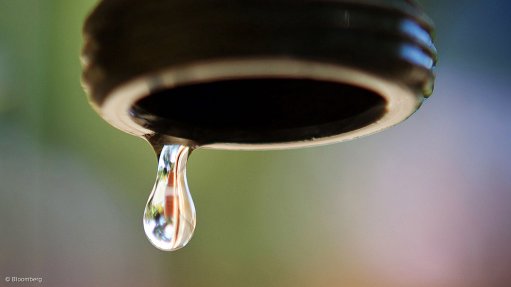
Photo by: Bloomberg
The Department of Water and Sanitation (DWS) in Gauteng is calling on industries to take action to reduce water demand and address all water leakages for a sustainable water supply by 2028. This initiative was highlighted during the recent Stakeholder Workshop on water conservation and water demand management, which took place at the Capital Hotel in Menlyn, Pretoria on July 10, 2024.
The workshop aimed to collaborate with industry stakeholders to develop management measures and practical tools for cost-effective water use in production lines. By introducing stakeholders to the latest advancements in water conservation and water demand management, the DWS hopes to provide guidelines and supportive tools for the development of an industrial water balance.
In collaboration with the Department of Science and Technology (DST), the Water Research Commission (WRC), and the National Cleaner Production Centre (NCPC), the DWS has established a South Africa-Denmark Strategic Water Sector Cooperation (SSC) with Danish partners to address the rising demand for water in the country.
Justice Maluleke, the Provincial Head of the Department of Water and Sanitation in Gauteng, highlighted the importance of the workshop and emphasised an urgent need to enhance water conservation and water demand management for the sustainable operation of the country.
“This workshop is coming at the right time because we need to strengthen our water conservation and water demand management to operate sustainably as a country”, He said.
Supporting Maluleke's sentiments, Mr. Xolani Hadebe from DWS’ Water Use Efficiency shared that the Department has developed the National Water Strategy (NWRS-3), the National Water and Sanitation Masterplan (NWSMP), and the Water Conservation (WC) and Water Demand Management (WDM) strategies for various sectors. These strategies are crucial in promoting water use efficiency, sustainable water management, and reducing water demand.
Hadebe also mentioned that the SSC has already implemented phases I and II, with phase III currently underway since 2023 and set to conclude in 2026.
Water demand in South Africa is expected to increase in agricultural, industrial, and municipal sectors in the coming years. Therefore, water conservation and demand management (WC/WDM) should be considered a responsible approach to ensuring the country's prosperity.
However, there still challenges of climate change, low rainfall, high evaporation rates, and water losses which are exacerbating water scarcity issues in the region.
Non-revenue water (NRW) in South Africa currently stands at 47%, significantly higher than Denmark's 5%. Per capita water consumption in South Africa is approximately 218 litres per person per day, compared to the global average of 173 litres per person per day. In contrast, Denmark's per capita consumption is only 105 litres per person per day. The irrigation scheme in South Africa is also experiencing water losses of between 35% to 45%.
To address these challenges and achieve a sustainable water supply, DWS with the assistance of its Danish counterpart has developed four strategies: the National WC/WDM strategy, the Agriculture WC/WDM strategy, the Water Services WC/WDM strategy, and the Industry Mining and Power generation (IMP) WC/WDM strategy. By implementing these strategies, industries can contribute to reducing water demand, fixing leakages, and ensuring a reliable water supply for all citizens until 2028.
In conclusion, the DWS and Danish partners is actively engaging with industries to prioritise water conservation, reduce water demand, and address water leakages to ensure a sustainable water supply until 2028. By working together with stakeholders and implementing practical measures, the DWS aims to create a more water-efficient and environmentally sustainable future for Gauteng and the country as a whole.
Issued by the Department of Water & Sanitation